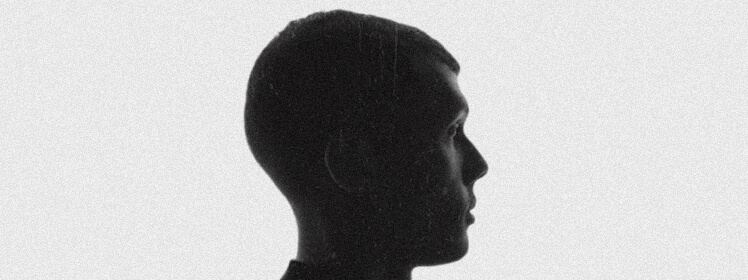Alors on sort pour oublier tous les problèmes
Let's go to a place where we can forget all our troubles
0 %
In Rwanda during these years, one of the worst genocides in modern history took place.
For nine-year-old Paul, the tragedy had a phantom character for several years: as his mother concealed the death of her husband, explaining his absence by a long departure for work.
The boy believed it, because he had only seen his father a few times before. Ruthar was a famous architect, and business trips took up a lot of his time.
This is what Stromae's hit song "Papaoutai" is about, in which the musician reflects on fatherlessness and the Rwandan genocide as shared and personal tragedies.
The Rwandan-born singer combines light beats and rather harsh social themes in his music.
Paul Van Aver was born in Brussels in 1985 to Tutsi Rwandan Pierre Rutar and Flemish Miranda Van Aver. In 1994, his father went to his homeland to visit relatives and did not return.
Paul's escape from loneliness was music. His mother took him to soul concerts by James Brown.
And during family parties, many musicians played in their house. Meanwhile, the clubs were playing the ubiquitous new-beat that put Belgium on the world music map in the late 80s.
STROMAE

"I'm proud to sing in beautiful French, because it's the language my mom speaks."
Belgium is "split" into Dutch Flanders and French-speaking Wallonia. The young Van Aver had already decided at the start of his career that he would choose French in music. He said:
leçons de Stromae leçons de Stromae leçons de Stromae leçons de Stromae leçons de Stromae leçons de Stromae
leçons de Stromae leçons de Stromae leçons de Stromae leçons de Stromae leçons de Stromae leçons de Stromae
leçons de Stromae leçons de Stromae leçons de Stromae leçons de Stromae leçons de Stromae leçons de Stromae
YOUTUBE
At the age of 18, Paul formed the rap group Suspicion with a friend, around the same time inventing the pseudonym Stromae as an anagram of the word "maestro".
Alas, the band quickly fell apart, prompting Paul to launch a solo career with a YouTube video blog.
There, in short videos called leçons de Stromae (lessons from Stromae), Paul showed the stages of production of his songs. No studio mystery — just open doors to the artist's citadel.
"I decided to record music video lessons on YouTube because I believed in accessible learning and wanted to help people master the world of music."
Alors on
danse
In 2009, the dance track Alors on danse first appeared on NRJ radio, which became a real discovery and soon topped the music charts in Belgium, France and Germany.
Just as Paul turned the word "maestro" upside down, he also reassembled the club music of the 2010s.
Alors on danse gained worldwide popularity in 2010 after the release of the artist's debut album Cheese.
Now Stromae really finds its uniqueness. Serious lyrics with social subtext and catchy instrumental become the musician's trademark.
suicidal dance
Racine Carrée's second album was as successful as possible, but Stromae unexpectedly announced a desire to take a pause in their career.
His second album and hit Formidable earns Paul the titles of Artist of the Year and Song of the Year at the NRJ Music Awards.
His music feigns fabrication only to surprise later with insight.
The new album mixes different sounds, from the almost bard-like songs of Formidable and Tous les memes to the African electro rhythms in Papaoutai.
The melody of Stromae does not distract the listener from the problems, but on the contrary helps to understand and experience them.
In 2013, Stromae released their second studio album Racine Carrée - even more versatile in its musicality.
Racine Carree




Racine Carrée's second album was as successful as possible, but Stromae unexpectedly announced a desire to take a pause in their career.
Racine Carree
His second album and hit Formidable earns Paul the titles of Artist of the Year and Song of the Year at the NRJ Music Awards.
His music feigns fabrication only to surprise later with insight.
The new album mixes different sounds, from the almost bard-like songs of Formidable and Tous les memes to the African electro rhythms in Papaoutai.
The melody of Stromae does not distract the listener from the problems, but on the contrary helps to understand and experience them.

In 2013, Stromae released their second studio album Racine Carrée - even more versatile in its musicality.












Part of the artist's world tour included a performance in Africa. there Paul took Lariam medication for malaria
In 2015, stromae put his music career on hold due to health and mental health issues.
The treatment caused adverse reactions in the artist: nightmares, depression, hallucination and confusion.
but later After a period of rest and recovery, the artist will return to creativity and release a new album.
depression
Multitude
multiplicity
This is the Belgian artist's third studio album, in which he works with dance electronica and folk from different nations, singing about peace, social injustice and how to beat depression.
In March 2022, Stromae returned with the album "Multitude".
In the single L'enfer ("Hell"), Paul shares his personal experience of struggling with deep depression and suicidal thoughts.
In another hit - Santé ("Cheers!") Stromae raises the theme of social inequality, suggesting to "raise a glass to those who don't have time for the holidays".









Words and music like a shot to the heart
Stromae masterfully manipulates words, creating lyrics that go straight to the soul. His ability to combine heartfelt lyrics with melodies that seem as if they were made for each other, creates a unique and inimitable sound.
tracks are like the scales of eternity
Stromae's songs deal with fundamental aspects of human life, such as love, frustration, social issues and personal struggles. This universality makes his work relevant and understandable to a wide audience at any time.
There are no fakes, only the truth
stromae's hit recipe
J'suis pas tout seul à être tout seul Ça fait d'jà ça d'moins dans la tête Et si j'comptais, combien on est Beaucoup
There is a real emotional intensity in stromae's music. His ability to convey true feelings and experiences allows listeners to easily connect with his work and feel a strong emotional impact.
This site is not just a biography
This is an opportunity to touch the legend and his work.
Who knows, maybe you will be the one to create the next generation hit?
Now you know the history of the formation of Stromae from the beginning to the present day.
Your author hopes that this fascinating story has inspired you to create your own masterpiece! Discover new facets of creativity in yourself, just like Paul once did.
merci
site design:
contact me:
The site was created as part of a course on creative layout for non-commercial purposes. All materials are in the public domain and belong to the copyright holders.

